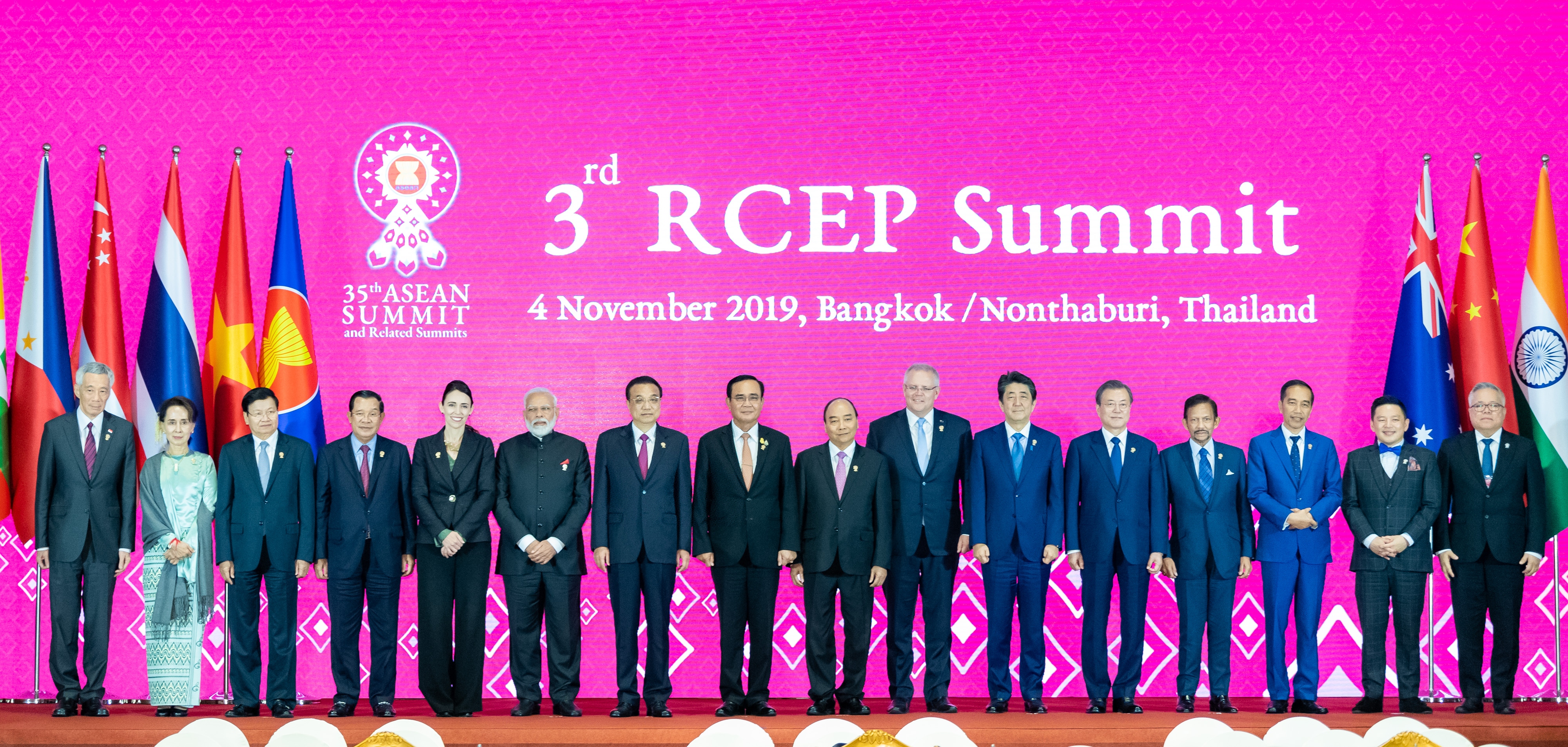RCEP commits to promoting global economy and trade
- By He Shuquan
 0 Comment(s)
0 Comment(s) Print
Print E-mail China.org.cn, November 8, 2019
E-mail China.org.cn, November 8, 2019

November 4, 2019 marked a significant milestone for the Regional Comprehensive Economic Partnership (RCEP) in its commitment to the promotion of an open global economy and its free trade system.
Leaders of the RCEP participating countries announced a joint statement at the 3rd RCEP Summit held in Bangkok, Thailand, announcing that 15 of the 16 participating countries had concluded text-based negotiations for all 20 chapters on market access issues; the final legal work will now begin for a signing in 2020.
Launched in Phnom Penh, Cambodia, in November 2012, the RCEP includes all 10 members of the Association of Southeast Asian Nations (ASEAN) along with Australia, China, India, Japan, the Republic of Korea and New Zealand.
They have been working on a comprehensive agreement, covering trade in goods and services, investment, economic and technical cooperation, intellectual property rights, competition, e-commerce (digital trade), government procurement, dispute settlement/legal and institutional issues.
This economic partnership will create a major trading bloc covering almost half of the world population, around a third of the world's gross domestic product, and nearly one-third of the global trade.
In the context of rising global trade tensions and protectionism, the deal will play a critical role in keeping international economic and trade cooperation on the right track by resisting protectionism, and bolstering support for an open global economy.
Specifically, the RCEP sends an important signal in support of trade liberalization and rules based trading arrangements at a time when the World Trade Organization (WTO) is facing deep challenges and needs a significant reform.
With the aims to deliver concrete market access and investment commitments, it will establish a single set of trade and investment rules across all RCEP participating countries rather than different rules for each country.
What is even more important is that the new areas covered for some RCEP participants, such as electronic commerce and government procurement, will help to modernize the trading relationships among the RCEP participating countries.
The RCEP is one of the key initiatives of China. As the second largest economy and largest trader in the world, it has always been proactive towards a more open and inclusive world economic system.
Just one day after the announcement of the RCEP joint leaders' statement, the Second International Import Expo (CIIE) opened in Shanghai, providing a significant platform for economies across the world to work together to develop and deepen cooperation.
Once their deal is signed next year, the RCEP will offer a good opportunity to its member countries to benefit from the fast growing Chinese market with a population of 1.4 billion, the biggest middle-income population in the world.
China, together with the RCEP participating countries, will promote the global economy and the growth of trade. In the new era of globalization where technological progress is transforming the global economy, deeper regional integration like RCEP will help deal with the multiple challenges stemming from anti-globalization sentiment and international trade tensions.
China is playing its part to promote cooperation with RCEP participating countries by continuing to open up its market, improve the business environment, and deepen multilateral and bilateral cooperation.
Studies suggest the RCEP will increase the global real income by an estimated $286 billion per year while global trade is expected to increase by 1.9% due to its existence. In terms of spillover effects, some non-members may in fact benefit due to the multilateral nature of the liberalization that RCEP requires and spillovers from members' increased productivity.
He Shuquan is a professor from School of Economics, Shanghai University.
Opinion articles reflect the views of their authors only, not necessarily those of China.org.cn.
If you would like to contribute, please contact us at opinion@china.org.cn.






Go to Forum >>0 Comment(s)